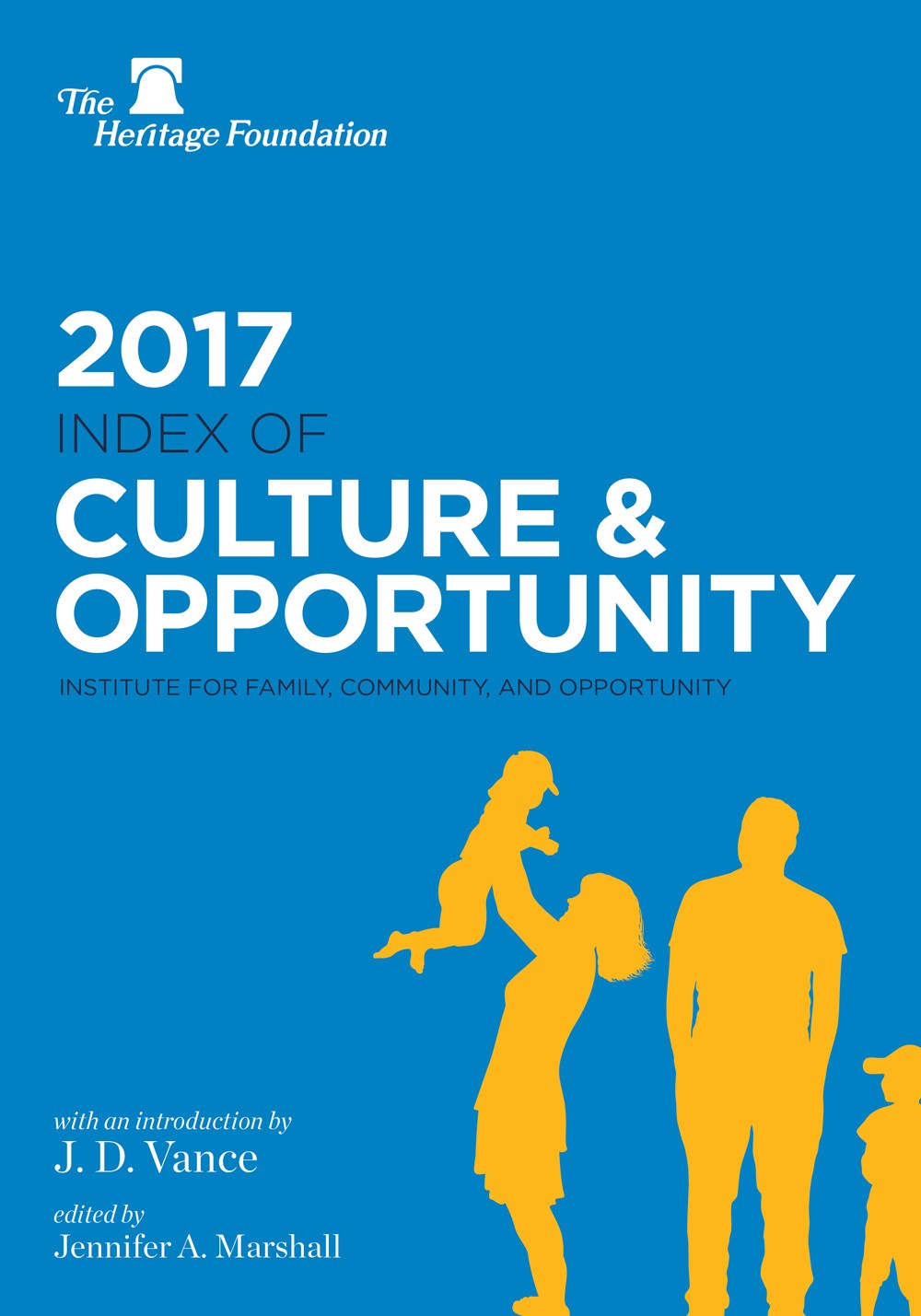“Moral ecology is the new frontier of political economy: the culture in which the free society thrives — or destroys itself.” –Michael Novak

Yet as the Heritage Foundation’s latest Index of Culture and Opportunity aptly argues and demonstrates, the broader cultural factors have plenty of influence on all the rest.
“Culture and opportunity are linked together,” writes J.D. Vance in the study’s introduction, demonstrating “something often lost in our politics these days: that the opportunities that exist in our society and our citizens’ perceptions of those opportunities shape our shared culture, and that our culture in turn shapes the opportunities available to individuals and communities.”
Leveraging 10 years of data, the Index offers a unique perspective into particular shifts and trends in the culture, looking at indicators in three distinct categories: cultural (“family, religious practice, and civil society”), poverty and dependence (“marriage and poverty, workforce participation, and welfare spending and participation”), and general opportunity (“education, jobs and wealth, and economic freedom”).
Taking 31 indicators into consideration, the study highlights areas for both optimism and concern, as illustrated in the following chart:
In reviewing some of these categories, many will surely wince or shrug, wondering what, for instance, the divorce rate or abortion rate or religious-attendance rate have to do with freedom, opportunity, and economic prosperity.
As Vance explains, breaking out of that mindset is necessary if we hope to get to the real roots of what we’re starting to see on the surface. “Too rigid a focus on the material permits us to divorce concerns about opportunity from those about culture,” he writes. “The comfort zone of many elites and thus their language trends toward the mathematical and technocratic. We speak about education and workforce development, the skills gap, automation and offshoring, and trade deficits in part because these things are easier to measure…It is harder to measure culture and how it affects the people who occupy it.”
Indeed, given the mounting evidence, the connections are increasingly clear:
But talk about it we must, because the evidence that culture matters should now overwhelm any suggestion to the contrary. We know, thanks to the work of experts like Nadine Burke Harris, that childhood trauma and instability make it harder for children to concentrate at school, deal with conflict successfully, or form stable families themselves later on. We know that two of the biggest factors driving regional differences in upward mobility are the prevalence of single-parent families and concentrated poverty, indicating that both family and neighborhood structure matter in the lives of our nation’s working class. We know that declining participation in civic institutions like churches destroys social capital and eliminates pathways to the middle class in the process. We know that the expectations that children have for themselves can drive their performance on standardized testing and a host of other endeavors.
Connecting those dots will require intentionality, and once distilled, the task of translating such wisdom into effective action will take significant work, whether at the individual/community level or in our responses via politics and policy. But it begins with a shift in our thinking.
“Addressing those problems will not be easy,” Vance concludes. “The problems of culture and opportunity demand smarter and better policy at all levels of government, participation of civic institutions, and energetic private-sector players, but asking the right questions is a necessary first step.”
For more, see the full report.